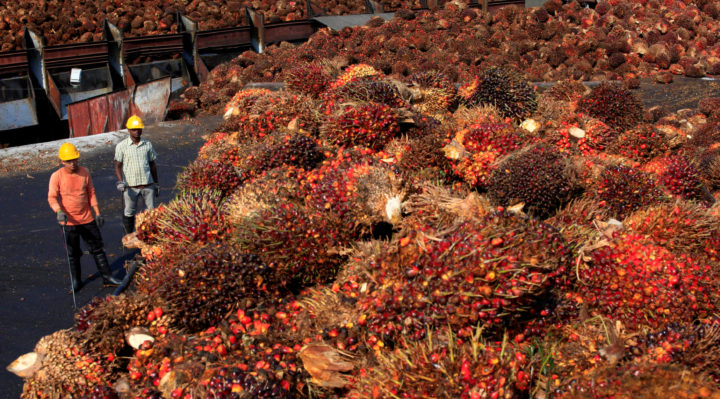Malaysia urged Norway to review its decision to ban palm oil-based biofuels and flagged such a move will be a hurdle to successful conclusion of ongoing talks with the four-nation European Free Trade Association.
The stand against palm oil will “adversely affect” bilateral trade relations between Malaysia and the European Free Trade Association that includes Norway, Malaysia’s Primary Industries Minister Teresa Kok said in a statement Friday.
Norway’s move “would be a major obstacle towards a successful conclusion of the Malaysia-EFTA partnership talks,” Kok said. “Malaysia would factor in such actions carefully in our deliberations with the EFTA.”
The European Free Trade Association consists of Iceland, Liechtenstein, Norway and Switzerland. The four nations are non-members of the European Union. Malaysia suspended negotiation with the European Union on free trade in 2012 and had sharply protested earlier this year the E.U.’s decision to ban the use of palm oil in motor fuels from 2021.
A large part of palm oil shipments to the E.U. are used as a substitute for the crude oil to make bio-fuel. A curb on such usage threatens the palm oil industry as it could potentially choke global demand for the edible oil that is used in everything from lipsticks to ice creams. The E.U, which was the second largest export destination of Malaysian palm oil in 2017 after India, accounted for 12% of the commodity’s overseas shipments.
Malaysia’s latest response follows the Norwegian parliament’s vote early this month to limit and phase out palm oil through measures and taxing biofuels beginning 2020. The vote will make Norway the first country in the world to ban biofuels based on palm oil over links to deforestation.
Malaysia and Indonesia, which together produce over 80% of the global supply of the edible oil, have long complained that measures to restrict palm oil are discriminatory and unjustified.
“Malaysia-EFTA partnership agreement must provide fair market access to all of the countries involved, including fair treatment of sustainable palm oil produced in Malaysia,” Kok said. “Without this fair market access, it will not be in the interest of Malaysia to pursue what will be a bad deal for the country and its people.”

The Southeast Asian country shipped a mere 846 tons of its palm oil to Norway, according to data from the Malaysian Palm Oil Board. Exports of palm oil to EFTA countries meanwhile account for less than 1% of its total 15.1 million tons sold abroad.
However, environmentalists have been pushing other countries to emulate Norway’s move, raising concerns in Malaysia where livelihood of some 650,000 smallholders are at stake.
“The Norwegian parliament’s decision sets an important example to other countries and underlines the need for a serious reform of the world’s palm oil industry,” Nils Hermann Ranum of Rainforest Foundation Norway said in a statement.
On its part, Malaysia said the government is implementing measures to ensure its entire palm oil production and supply chain are sustainable. The government has also pledged to halt any expansion of oil palm estates to maintain at least 50% of its land as forest cover.
Negotiations for EFTA are still ongoing with Norway though bilateral talks, including that on palm oil, said Malaysia’s International Trade Minister Darell Leiking. “We hope that Norway will continue with what we agree upon,” he said without elaborating on the terms.
Malaysia responded to an earlier European Union proposal to ban the use of palm oil in biofuels by threatening to scuttle free trade talks between the Association of Southeast Asian Nations, of which it is a member, and the bloc. Collectively, the EU bought 1.82 million tons of palm oil from Malaysia.
The Asean, which includes 10 countries, and the EU agreed last year to try and revive trade negotiations, which were suspended in 2009. Since then, the EU has started bilateral negotiations with some individual countries.
(asia.nikkei)
